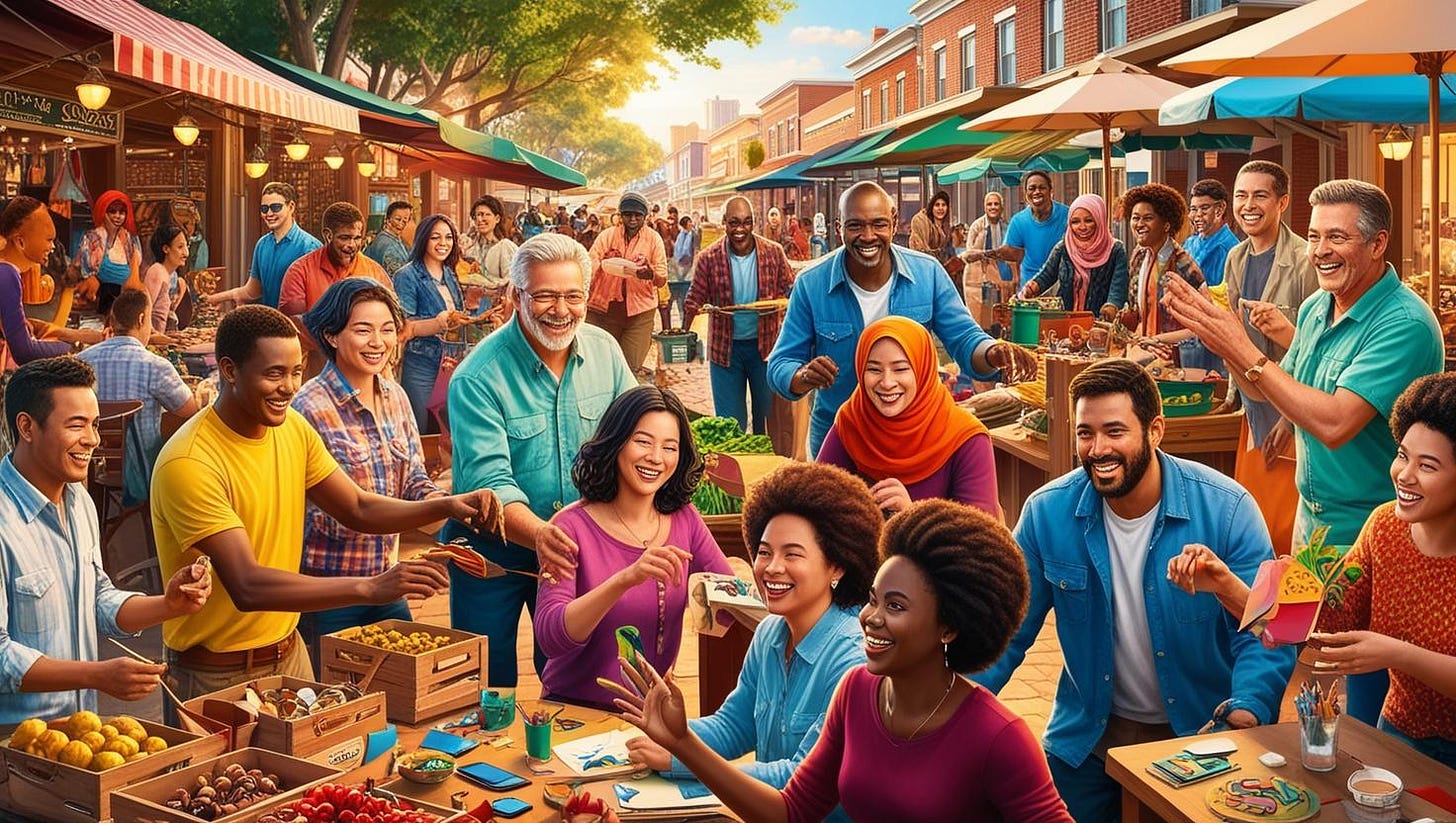Do You Need Libertarians for a Libertarian Community?
Libertarians are often misunderstood. Some see them as malcontents seeking personal freedom to indulge in vices, while others assume they want a society with no rules or no regard for others. In reality, libertarianism encompasses a diverse range of people, only united by shared values like individual liberty, minimal government intervention, property rights, and voluntary exchange.
Libertarians are famously difficult to manage. There's a saying that “organizing libertarians is like herding cats.” They’re known for heated debates over the finer points of political philosophy, with phrases like, “That person isn’t a real libertarian,” being all too common in libertarian circles.
When it comes to libertarian communities—neighborhoods, villages, or cities organized around these principles—stereotypes persist. Many imagine them as enclaves of ideologues or utopian experiments destined to fail. However, successful libertarian communities aren’t about ideological purity. Instead, they succeed by solving real problems and serving broader markets.
What Defines a Libertarian Community?
A libertarian community emphasizes principles like economic freedom, consent-based governance, and voluntary association. These values create environments where individuals can thrive without unnecessary government interference. However, these principles aren’t exclusive to libertarians—they have universal appeal.
At their core, libertarian communities are not created by top-down coercive governments. Instead, they’re built by entrepreneurs solving problems and meeting the needs of their target markets. Some examples include:
Free Cities or Charter Cities: Cities with some degree or legal autonomy from their host nation, such as Próspera in Honduras.
Special Economic Zones (SEZs): Regions with distinct regulations designed to attract investment and innovation. Those with residents can be libertarian.
Intentional Communities: Groups of people living together with de facto autonomy, although legally subject to national controls.
Seasteads: Floating cities that could soon become the purest examples of libertarian governance.
While these communities often spring from libertarian principles, they don’t cater exclusively to libertarians. Their success depends on appealing to people of all ideologies by offering tangible benefits like safety, economic opportunity, and quality of life.
Markets, Not Ideology, Drive Success
The most successful libertarian communities serve a broader market, meeting the needs and desires of their residents. Take Ciudad Morazán in Honduras as an example. Under the semi-autonomous ZEDE law, it operates on libertarian principles but targets Honduran workers—not libertarians necessarily. Its primary value proposition is to offer residents a safer, more prosperous life than they could find elsewhere.
To take a seemingly trivial aspect, a secondary value proposition of Ciudad Morazán is cleanliness, a value often overlooked in the surrounding areas. Residents agree to follow a strict no-littering rule, enforced not with fines but with reminders from private security. The result? Almost immediately, residents began taking pride in the cleanliness of their community.
This simple rule demonstrates how libertarian principles like property rights and personal responsibility can create environments people genuinely want to live in. Rules like these, coupled with broader economic freedoms, make Ciudad Morazán a compelling example of how practical governance can align with libertarian values while serving a non-libertarian market.
Contrast this with the infamous case of Grafton, New Hampshire—a town some libertarians hoped to turn into a “libertarian paradise.” In their focus on ideological freedom, some residents insisted on their right to feed wild bears, ignoring the risks. Predictably, the bears became a serious problem, endangering the community. This story highlights how overemphasizing ideology at the expense of practicality can lead to failure.
Lessons for Entrepreneurs
The lesson for entrepreneurs considering building libertarian communities is clear: success isn’t about catering exclusively to libertarians. It’s about creating environments where anyone—regardless of ideology—can thrive.
Economic freedom attracts everyone. Entrepreneurs value the ease of doing business. Remote workers seek low taxes and quality of life. Families prioritize safety and infrastructure. By focusing on these universal needs, communities can build resilience and sustainability.
Businesses succeed by understanding and serving their markets, not by imposing values on their customers. Libertarian communities can operate the same way. They can adhere to principles like voluntary governance and minimal intervention while adapting to the cultural and practical needs of their residents.
Final Thoughts
Libertarian communities don’t need libertarians to succeed. They need entrepreneurs who understand markets, solve real problems, and create value. By prioritizing safety, opportunity, and quality of life, these communities can appeal to a broad audience and thrive.
As Ciudad Morazán demonstrates, libertarian principles can quietly create environments where people of all ideologies flourish. The challenge is not to build ideological havens but to build communities that work. The world is full of opportunities for entrepreneurs willing to take on this challenge.




